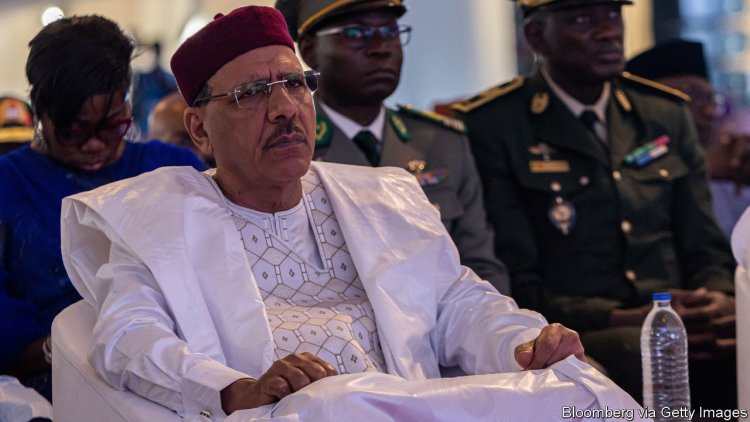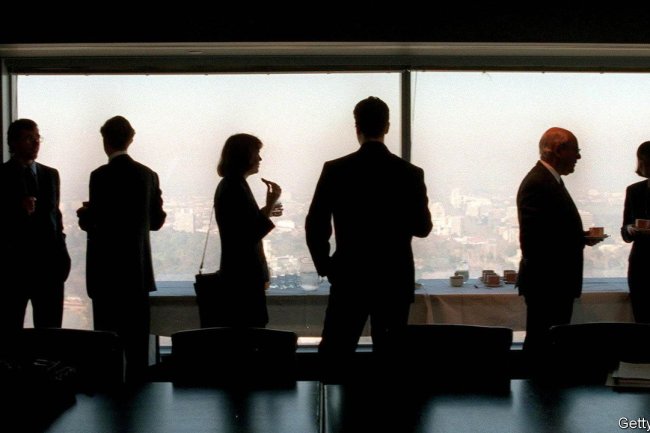Niger’s putsch is bad for the country—and for the region
image: Bloomberg via Getty ImagesMore than 48 hours after soldiers began holding President Mohamed Bazoum of Niger hostage inside his presidential palace in Niamey, the capital, and some 36 hours after a group of soldiers went on television to declare his rule was over, the coup leader finally emerged: General Abdourahmane Tchiani, who also uses Omar as his first name. Formerly tasked as leader of the presidential guard with protecting Mr Bazoum, the double-dealing general now heads the junta and proclaims himself head of state. The delay over who would lead the junta hints at disorganisation and disagreement at the heart of the coup. While much remains uncertain, the most plausible explanation for the putsch is a lust for personal power among the soldiers and discord among the politicians. General Tchiani was reportedly in line to be sacked by Mr Bazoum. This may have partly been the reason for lengthy negotiations between the general and other branches of the army on July 26th, befor


More than 48 hours after soldiers began holding President Mohamed Bazoum of Niger hostage inside his presidential palace in Niamey, the capital, and some 36 hours after a group of soldiers went on television to declare his rule was over, the coup leader finally emerged: General Abdourahmane Tchiani, who also uses Omar as his first name. Formerly tasked as leader of the presidential guard with protecting Mr Bazoum, the double-dealing general now heads the junta and proclaims himself head of state.

The delay over who would lead the junta hints at disorganisation and disagreement at the heart of the coup. While much remains uncertain, the most plausible explanation for the putsch is a lust for personal power among the soldiers and discord among the politicians. General Tchiani was reportedly in line to be sacked by Mr Bazoum.
This may have partly been the reason for lengthy negotiations between the general and other branches of the army on July 26th, before any public utterance. The army chief of staff, General Abdou Sidikou Issa, later declared, with a hint of reluctance, that he had decided to back the coup to “avoid a deadly confrontation between the various forces” that could result in a “bloodbath” and could endanger Mr Bazoum’s life.
The coup is a heavy blow for Niger and the wider region, which has long been battered by jihadists linked to al-Qaeda and Islamic State. Last year some 10,000 people were killed in conflict across Burkina Faso, Mali and Niger. Soldiers seized power from civilians in Mali in 2020. In Burkina Faso gun-toting men took power in January 2022 before a different set of khaki-clad men overthrew them in a second coup in September. Both juntas have pushed out and scapegoated French forces. Mali’s has invited in mercenaries from Russia’s Wagner Group.
Niger was the last solid Western ally in the region and hosts about 1,500 French soldiers helping to fight the jihadists. America has more than 1,000 service people deployed there too, mostly on drone bases. Their future is now uncertain.
General Tchiani tried to cast his actions in a more honourable light by echoing the neighbouring juntas’ claim that the reason for the coup was the “continuing deterioration of the security situation”. He said Mr Bazoum’s approach to the jihadists had been a failure and complained of the president’s decision to free some jihadist fighters. He also claimed that Mr Bazoum had not allowed serious joint operations with Burkina Faso and Mali. “We cannot continue with the same approaches proposed so far, as it risks witnessing the gradual and inevitable disappearance of our nation,” said the general.
Little of this was valid. Indeed, Mr Bazoum’s release of some alleged jihadists was related to a sensible effort to demobilise the insurgents through negotiations, which have already reaped some success. Mr Bazoum’s government had arranged some temporary ceasefires with some jihadist fighters and had struck peace deals between violently quarrelling ethnic communities.
In the shade of a banana tree outside a villa in Niamey in June your correspondent shook the hand of various ex-jihadist commanders who had begun trying to persuade other jihadists to lay down their arms. As for military co-operation with Burkina Faso, Mr Bazoum had several times given the go-ahead for joint actions—until the second coup there last September. After that, it seems to have been Burkina Faso rather than Niger that was unkeen to co-operate. Mr Bazoum’s former deputy director of cabinet, Daouda Takoubakoye, said the coup was “for personal convenience justified by arguments drawn exclusively from social networks”.
In fact Mr Bazoum’s campaign against the jihadists has been the most successful in the entire region. While death and destruction have soared in Mali and Burkina Faso, less than a tenth of the deaths in the three countries last year were in Niger, despite its also having to deal with separate jihadist violence perpetrated by Boko Haram, a group that spills over from north-east Nigeria.
Deaths from conflict in the first six months of this year in Niger have been the lowest of any similar period since 2018. Mr Bazoum‘s biggest problem seems to have been his failure to bring along enough of the army top brass with him. It is unlikely the new junta will improve security. In Burkina Faso and Mali the ruling soldiers have made it worse.
How much popular support General Tchiani commands remains to be seen. On July 26th, as Mr Bazoum was being held, hundreds of protesters chanting “No coup d’état!” marched towards the palace but were scattered by gunfire. The next day another crowd gathered in support of the coup, some with signs saying “Down with France!” A few waved Russian flags. Some then attacked the headquarters of Mr Bazoum’s political party, setting cars on fire.
But Mr Bazoum clearly has supporters on the street, too. “Mali and Burkina Faso are run by the military but nothing has changed,” says Aboubacar Moussa, a taxi driver in Niamey. “I prefer democracy,” he adds. Aliko Saminou, a plumber in the capital, sighs that “with this coup we are going back 20 years”.
President Emmanuel Macron of France agrees. “This coup d’état is completely illegitimate and deeply dangerous for Nigeriens, for Niger, and for the whole region,” he declared. Bola Tinubu, the new president of neighbouring Nigeria, who chairs the Economic Community of West African States (ECOWAS), a 15-member regional bloc, said that he “will not tolerate any situation that incapacitates the democratically elected government of the country.”
Yet diplomatic pressure may be too slow and weak to achieve a reversal. ECOWAS will meet only on Sunday to discuss how to respond. The bloc may propose economic sanctions like those it imposed largely in vain on Mali’s junta. France has already said it will back sanctions. The European Union has threatened to withdraw all budgetary support.
There is no evidence to suggest the hand of Wagner or Russia. The Russian foreign ministry even called for Mr Bazoum to be released. Yet an audio message whose authenticity has yet to be verified has apparently been issued by Yevgeny Prigozhin, Wagner’s boss. “What happened in Niger is nothing more than the struggle of the people of Niger against colonisers, who tried to impose their own rules of life,” it said.
Some put hope in the fact that Mr Bazoum has formally yet to resign. Surprisingly, he continued to use his phone for much of July 26th and for some of the next day. He spoke to America’s secretary of state, Antony Blinken, and to the UN’s secretary-general, António Guterres. After the soldiers announced the coup, he continued defiantly to tweet.
Yet if he has a chance of reclaiming his throne, Mr Bazoum must keep at least a chunk of the army onside. That looks vanishingly unlikely. The prospect for security improving in Niger or across the Sahel seems correspondingly grim. ■
What's Your Reaction?













